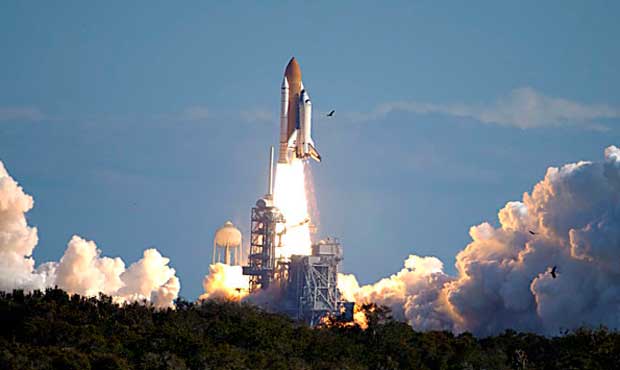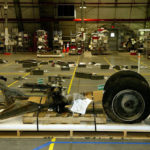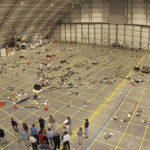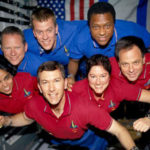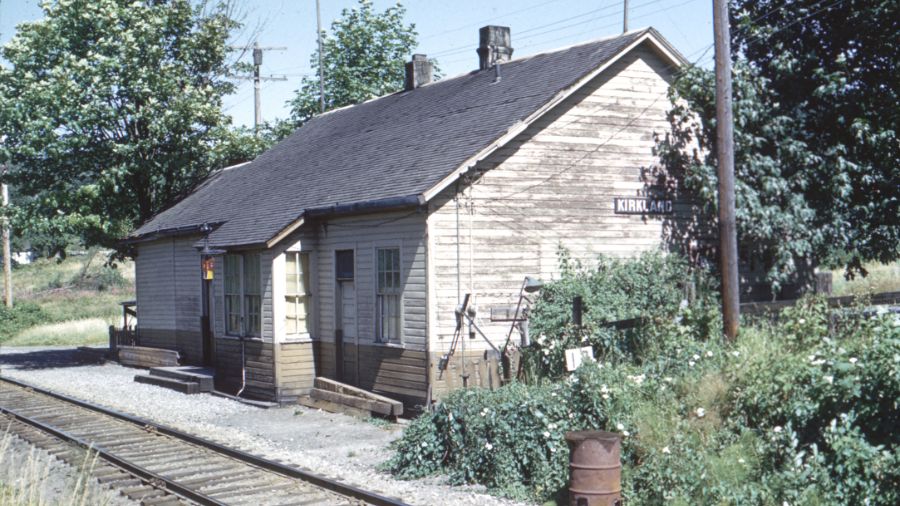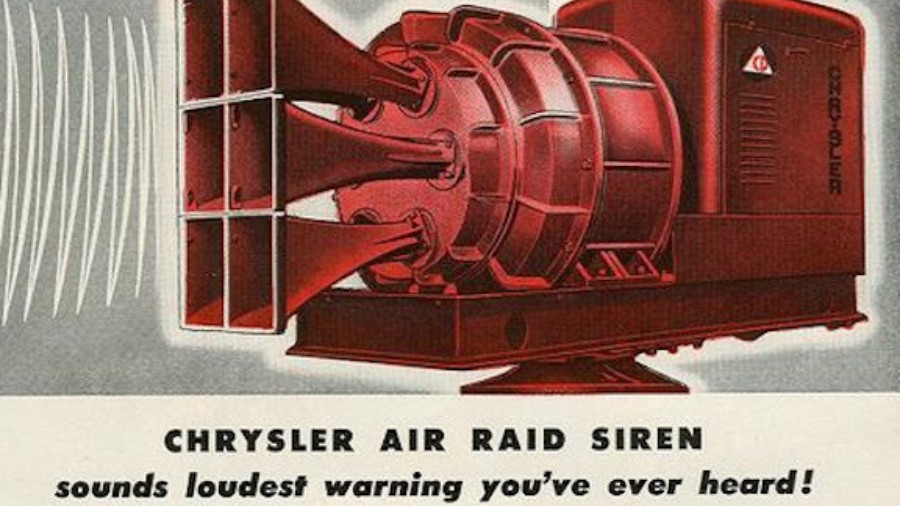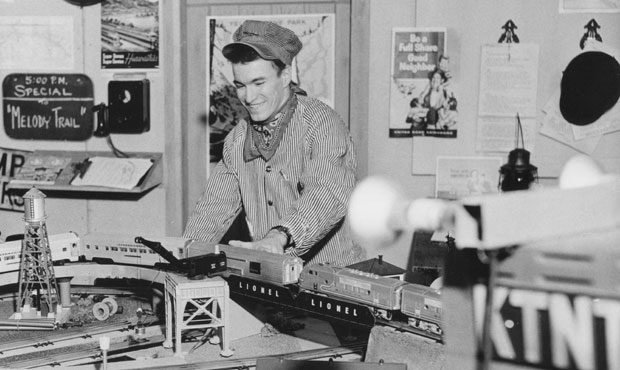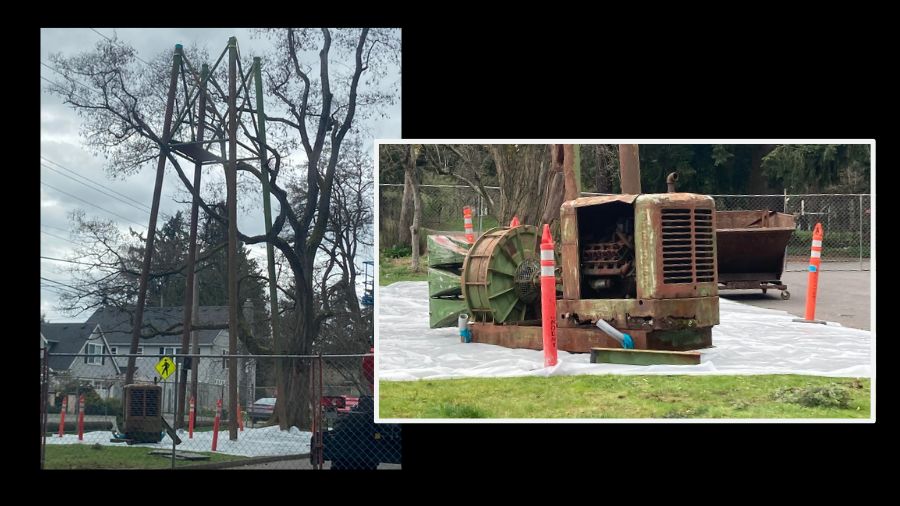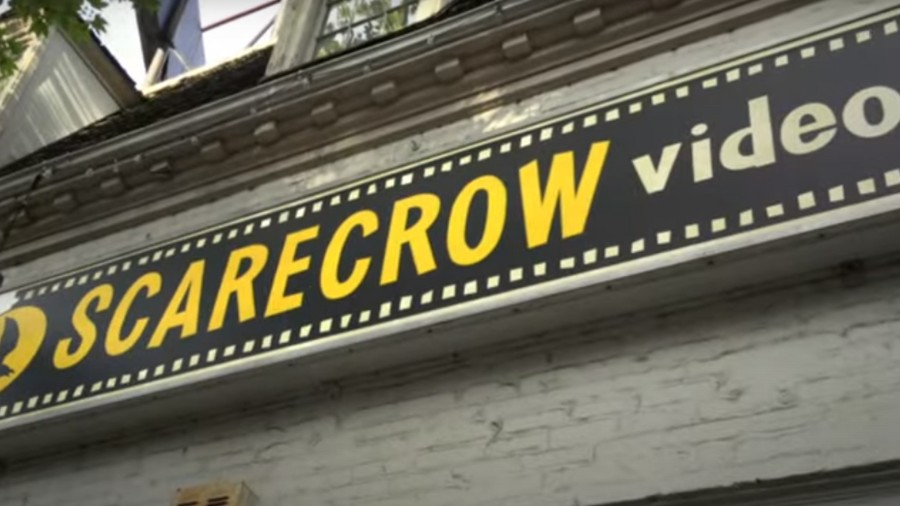Space Shuttle Columbia lost in a storm of history 20 years later
Jan 30, 2023, 7:19 AM | Updated: 7:59 pm
It’s easy to forget just how much was going on in the world in early February 2003.
The terrorist attacks of 9/11 were recent and raw, and the Department of Homeland Security was just two months old.
American forces and their allies were at war in Afghanistan, and the hunt was (still) on for Osama bin Laden.
Photos: Super blue blood moon
Meanwhile, the war against Iraq loomed. In October 2002, Congress authorized President Bush to take action against Saddam Hussein’s regime, and the administration was paving the way toward a military response to the perceived threat of chemical and nuclear weapons.
In his State of the Union address on Jan. 28, 2003, President George W. Bush spoke of the weapons of mass destruction that Iraq was alleged to then be hiding (the Democratic response that night came from Washington Governor Gary Locke). On Jan. 31, the looming war against Iraq was the main topic when Bush welcomed British Prime Minister Tony Blair to Camp David, and Colin Powell was preparing to address the United Nations with a long list of evidence against Saddam Hussein.
It was against this backdrop on the morning of Saturday, Feb. 1, 2003, that the Space Shuttle Columbia was lost just 15 minutes before it was scheduled to land at Cape Canaveral. It was the 28th mission for the reusable Columbia, which had inaugurated the shuttle program in 1981, and the 107th overall shuttle mission for NASA.
News broke just after 6 a.m. Pacific Time that NASA had “lost contact” with the Space Shuttle Columbia somewhere over Texas. The notion of “losing contact” with a spacecraft, especially one that lands like a glider, was difficult to reconcile and not like any NASA mission anyone could recall.
Within minutes, CNN was airing video from the Dallas area, appearing to show Columbia breaking up into pieces high in the cloudless sky. Then, reports began coming in of debris landing across a wide swath of Texas and Louisiana.
The crew of seven astronauts aboard Columbia that morning included payload commander Michael P. Anderson, who grew up in Spokane, and who graduated from Cheney High School and the University of Washington. Also lost in the disaster were Rick D. Husband, mission commander; Kalpana Chawla, mission specialist; William C. McCool, pilot; David M. Brown and Laurel B. Clark, both mission specialists; and Ilan Ramon, payload specialist from the Israeli Space Agency.
And it was the presence of Ilan Ramon that initially fueled speculation that some kind of sabotage or terrorist attack was to blame for Columbia’s destruction, but this speculation was quickly discounted by mainstream news outlets.
CBS-affiliated KIRO Radio was still broadcasting on the AM band in those days. Also, in those days, the station aired a live Saturday morning news block from 5 a.m. to 9 a.m., hosted by Jim Valley and the late Jeanne Lockhart.
When Columbia was lost, KIRO Radio went wall-to-wall with CBS Radio Network coverage just after 6 a.m., with occasional local cut-ins, like this one from Jim Valley around 6:45 a.m.
“You’re listening to continuing CBS News coverage of an emergency with the Space Shuttle Columbia this morning here on 710 KIRO,” Valley told Puget Sound area listeners as he interrupted the CBS coverage.
“Earlier this morning,” Valley continued, “NASA lost communication with the shuttle as it soared over Texas, and CNN is showing a video of the shuttle as it passed over Texas. It is showing – appearing to show – multiple trails, and of course, we’re getting word from NASA this morning in Texas to avoid areas of debris. So no communication right now with Mission Control and the Space Shuttle Columbia. This is breaking news on Newsradio 710 KIRO.”
Listening back to four hours of that coverage from 2003, it holds up fairly well (though the AM sound has its drawbacks). CBS Radio’s Peter King at Cape Canaveral and Dan Raviv in Washington, DC, are fairly restrained and informative, weaving a mixture of their own observations with live reports from Texas and ominous announcements from NASA public affairs officials. The broadcast gains a certain heft an hour or so in, when longtime CBS Radio anchor Christopher Glenn joins in on what had clearly been a scheduled day off for the legendary newsman.
One notable moment that came just after 7:30 am Eastern time stands out 15 years later. It was at this time that KIRO Radio listeners heard a theory about the cause of the disaster, and it was a theory that would ultimately be proven correct.
“When this shuttle took off, Columbia, you know it’s attached to an external fuel tank that rises up above,” said CBS Space Consultant Bill Harwood in an audio clip played during an update anchored by Howard Arenstein. “Some of the orange foam insulation on that tank apparently broke off and hit the left wing of the orbiter on the edge of its leading-edge they call it,” Harwood said.
As the morning wore on, “Gardening with Ciscoe” was preempted at 9 a.m., and Dave Ross was called in to anchor KIRO Radio’s continuing coverage.
“We’ll be covering this all morning,” Ross said just after 9 a.m. “And just to briefly address some of the speculation that’s already started about what might have caused this, including the speculation it might have been hit by something, we’ve been looking up some of the statistics and, for example, a stinger missile the range is only eight kilometers or about four miles, the ceiling would be 10,000 feet, and that’s one of the reasons that NASA has been discounting some of these rumors that have been flying that something may have brought the Space Shuttle Columbia down. Let’s now return to CBS’s continuing coverage.”
Former KIRO Radio newsman Jim Valley recently became the public information officer for the Washington State Senate Republican Caucus. He was a sophomore in high school when the Space Shuttle Challenger was lost in 1986, and he calls that tragedy one of the defining events of the 1980s.
And he still vividly remembers being on the air for KIRO Radio when Columbia was lost. But rather than relishing being part of the coverage of a major breaking news story, he most remembers hoping that the bad news would all turn out to be wrong.
Valley says he felt “sort of tragically hopeful” about the events in Texas and Florida as they unfolded that morning.
“In your mind, you know what has probably happened,” Valley said. “But there’s a part of your heart that doesn’t want you to give up hope, that maybe this was a technical error or momentary loss of power or somebody made a bad calculation, and the space shuttle is just in another location.”
Having lived through the Challenger disaster as a teenager, was Jim Valley particularly aware of the momentousness of the loss of the Columbia?
“You know, the whole time it never occurred to me that I would be talking about history live on the radio like that,” Valley said. “The whole time, I’m thinking, ‘I hope that this is just a minor incident that I’m talking about instead of history.’”
After a thorough investigation into the tragedy, the space shuttle program would continue on for 28 missions beyond the loss of Columbia. Since the shuttle program ended, no single NASA program has replaced the shuttle for ferrying equipment and people into space and to the International Space Station.
That final shuttle mission took place in July 2011, and the remaining spacecraft were distributed to museums around the country. Were it not for the loss of Columbia 20 years ago, one of those shuttles might have made its final mission, a trip to Seattle’s Museum of Flight.
When NASA announced in April 2011 that Seattle would not be getting a surplus shuttle, Museum of Flight CEO Doug King said, “I believe if there were one or two more shuttles to go around, we would have one.” Former shuttle astronaut and former Museum of Flight CEO Bonnie Dunbar concurred, telling a reporter, “If there’d been some more shuttles, that might have been a viable alternative, but you know that’s sort of in the past.”
Originally published January 31, 2018
You can hear Feliks every Wednesday and Friday morning on Seattle’s Morning News with Dave Ross and Colleen O’Brien, read more from him here, and subscribe to The Resident Historian Podcast here. If you have a story idea, please email Feliks here.

